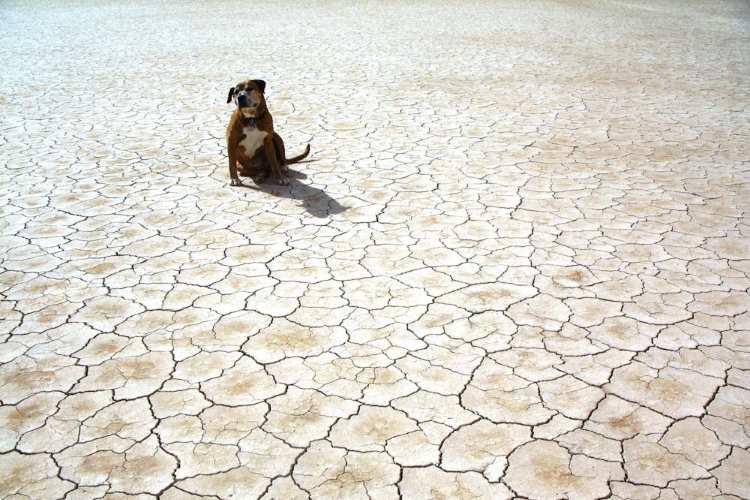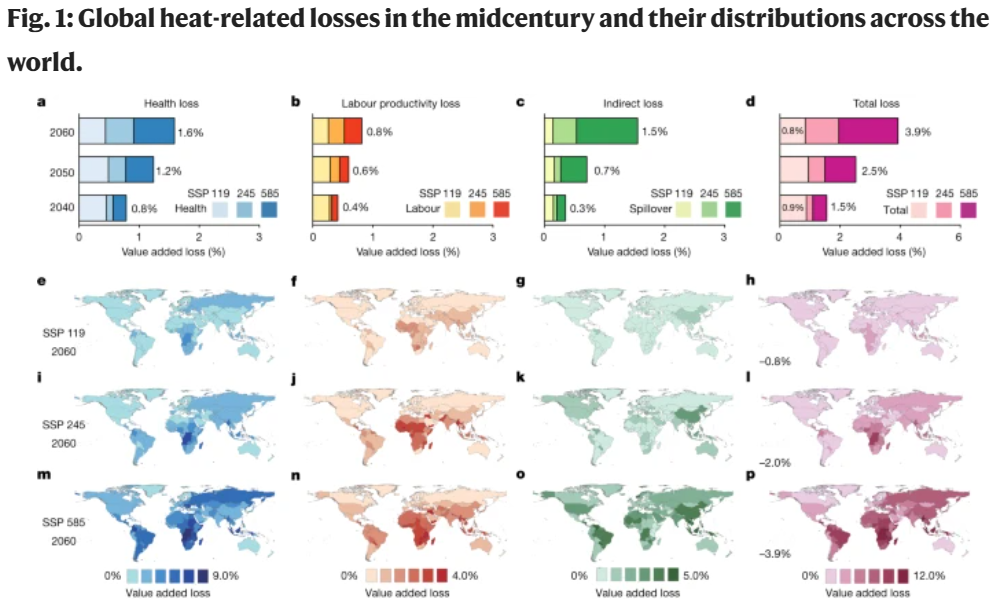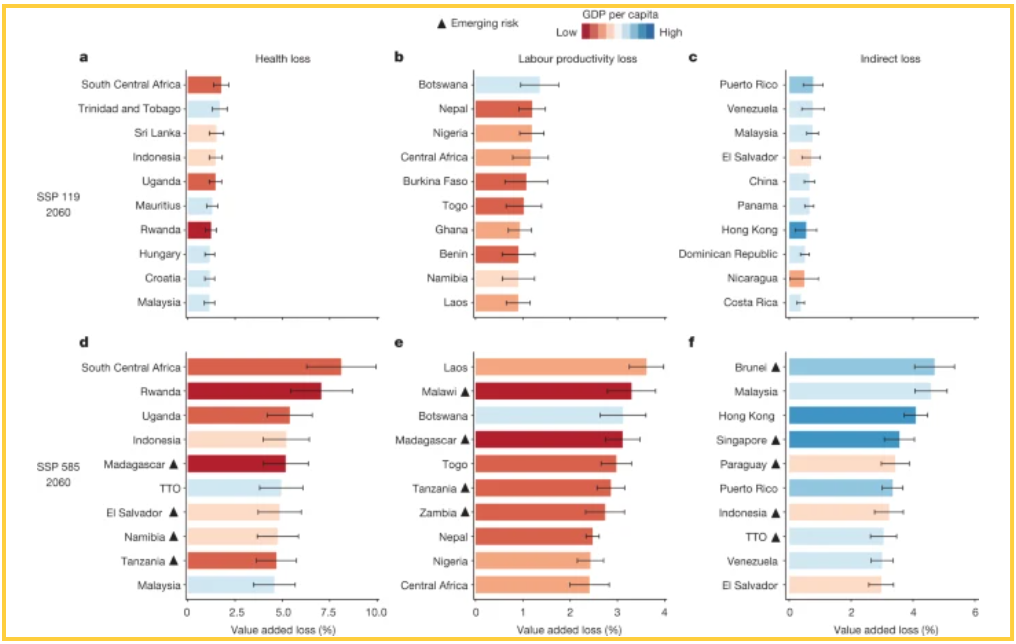
Global warming poses a grave threat for the global economy with its cascading effects impacting sectors from tourism and transport to food production and healthcare. New research presents a stark economic forecast, predicting widespread disruptions across industries by 2060. As heatwaves threaten agricultural productivity and rising sea levels necessitate costly infrastructure, the interconnected nature of global industries suggests a domino effect of financial losses. The strain on healthcare systems due to heat exposure and the economic ramifications of work stoppages during extreme temperatures add layers of complexity to the financial toll of climate change.
The economic repercussions of global warming are not uniform, with varying degrees of impact across different regions and economies. The study led by Professor Dabo Guan of University College London projects that by 2060, economic disruptions will reverberate through sectors such as tourism, transport, food production, and healthcare. For example, the Dominican Republic, heavily reliant on tourism, faces significant economic risks as warmer climates deter visitors. In agriculture, countries like Tanzania will experience profound losses, emphasising the disproportionate effect on lower-middle-income economies dependent on primary industries. These examples underscore the interconnectedness of global industries, where disruptions in one sector can trigger a chain reaction affecting others worldwide.
READ I The Arctic standoff: Implications of new western sanctions on Russia
Climate change impact on economic activity
Addressing the sector-specific impacts of global warming, industries like construction, mining, and manufacturing are poised for severe disruptions due to heat stress. Particularly in tropical and subtropical regions, the viability of outdoor work during peak heat periods diminishes, directly affecting productivity and economic output. In countries such as Tanzania and India, sectors that rely heavily on outdoor labour such as agriculture and construction will encounter significant value-added losses. This reduction in productivity not only affects the local economies but also has ramifications for global trade, given these regions’ roles in the international supply chains of raw materials and food products.
The service sector, including tourism and financial services, faces indirect losses from climate-induced changes. Regions known for their natural beauty or cultural heritage, like the Dominican Republic, may see a decline in tourist arrivals as they become less appealing due to rising temperatures and weather extremes. This decline in tourism not only affects local economies directly but also has a cascading effect on related industries, including retail, hospitality, and transportation. Financial services, tied to property and investment in climate-vulnerable areas, will also face increased risks, impacting insurance premiums and the availability of capital for development projects in these regions.


The financial implications of global warming are staggering, with the study projecting net economic losses ranging between $3.75 trillion to $24.7 trillion by 2060, depending on the trajectory of global emissions. In high-emission scenarios, the economic fallout is exponentially greater, highlighting the urgent need for sustainable development and stringent emission controls. The study also brings to light the disproportionate burden on developing countries near the equator, which are less responsible for carbon emissions yet suffer greater economic losses.
In addition to direct financial losses, the global supply chain faces significant risks. Disruptions due to climate change-induced events like droughts, wildfires, and tropical storms can ripple through interconnected industries, affecting economies worldwide. The study’s analysis extends to the indirect losses in supply chains, emphasising the extensive economic ramifications beyond immediate environmental damage. For instance, industries in countries like China and the US, pivotal in global manufacturing, could incur substantial economic losses due to supply-chain disruptions.
Global heatwaves are expected to exacerbate, with profound socioeconomic costs. Beyond the immediate health risks, the pervasive impact on labour productivity and supply chains threatens to destabilise the global economy. The study’s disaster footprint analytical framework reveals that global economic losses from heat stress will increase nonlinearly, with substantial contributions from health and labour productivity losses, as well as indirect losses due to economic disruptions. Developing countries, particularly in regions like South-Central Africa and Southeast Asia, will face disproportionate health and labour productivity losses.
The economic impact of global warming is a clarion call for a unified global strategy to mitigate climate risks. It highlights the need for policies that not only reduce emissions but also enhance the resilience of global supply chains. Developing targeted adaptation strategies requires an understanding of how heat stress affects different regions and sectors. The study’s findings emphasise the urgency of global cooperation in climate change mitigation and adaptation efforts to safeguard economic stability and human well-being.
The economic impact of global warming extends far beyond environmental degradation, threatening the very fabric of global economic stability. Different studies point to the need for urgent, coordinated action to mitigate the looming economic crisis posed by climate change. As we stand at the crossroads of potential climate trajectories, the choices we make today will determine the economic landscape of tomorrow, highlighting the imperative for immediate and concerted global efforts in combating the escalating threats of global warming.
